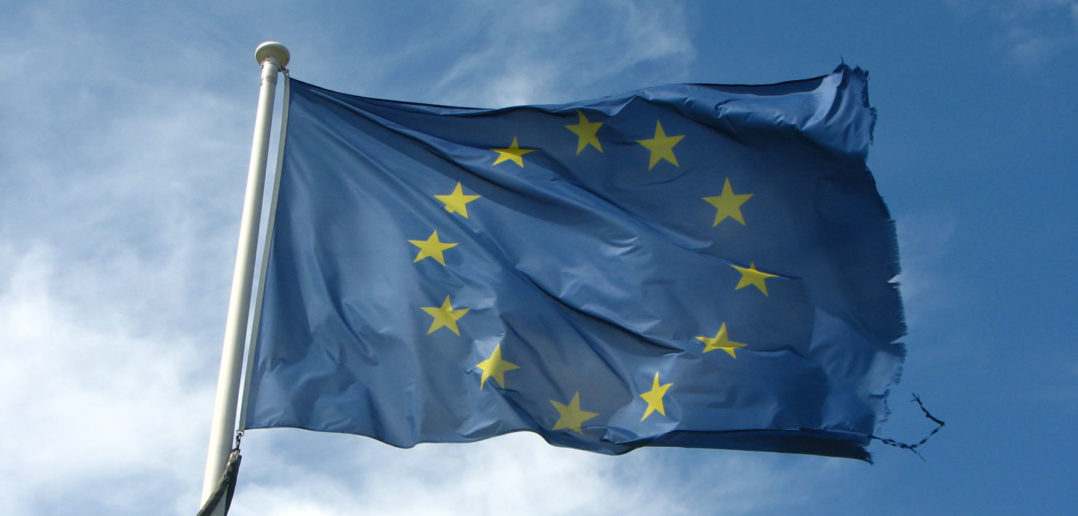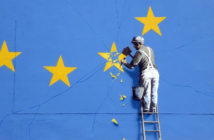When Ted Malloch emerged as Donald Trump’s potential pick as American ambassador to the EU, European officials provided a rare glimpse of unity in protesting the appointment. Malloch has been quite vocal about his contempt for the EU and just days before Donald Trump’s inauguration he compared it to the Soviet Union – a view he’s expressed freely since the property mogul’s rise to the presidency.
While Malloch’s rhetoric may rightfully be regarded as overly cantankerous, it is hard to dismiss the allegation that Europe is in a bad state. The EU is facing a tide that has been growing ever stronger for the embattled union: Brexit has rattled the very foundations of Europeans’ sense of unity; Greece has once again lurched to the point of financial collapse, reawakening the spectre of “Grexit” in the process. To top it off, major elections are looming in France and Germany, which in the current gloomy atmosphere could very well end up derailing the EU’s long-term strategy of integration.
However, for all of Malloch’s anti-EU screeds, perhaps he has a point: a political union that fails to find adequate solutions to its most pressing internal issues cannot pretend to be a global player. It does not help, then, that Brussels continues to adamantly focus on expanding its membership eastwards, into a region long beset with intractable socio-economic problems of its own.
The European Union’s moral stance in claiming to have a reforming impact on states aspiring to enter it has already been thoroughly disproven by the fact that Brussels cannot get illegality and corruption among public servants in member states under control. Rising levels of corruption in Hungary have severely undermined faith in public institutions, with many business leaders complaining that corruption is thwarting much-needed foreign investment into the country. In Poland, corruption is running rampant in the healthcare sector, where paid bribes are a daily occurrence. Already back in 2013, a Eurobarometer survey revealed that 86% of Poles thought that corruption had reached unacceptable levels.
And yet, the EU is continuing to court former Eastern bloc states to the wider EU cause and growth, countries that have little regard for transparency among its high officers and custodians of power. Earlier this year, Serbia was ranked 72nd out of 176 countries, scoring 42 points in the corruption perception index, where 100 is considered “clean”. These numbers, as well as the extraordinarily low-levels of anti-corruption prosecutions, indicate that since its EU accession application in 2014, not a lot has been done to tackle ingrained systemic corruption.
The European Commission reached similar conclusions. The Serbia 2016 Report laments the fact that “Corruption remains prevalent in many areas and continues to be a serious problem”, crucially adding that the country has made “no progress in the implementation of the national corruption strategy”. And recent developments in Serbia do not give reason to believe that things will change for the better any time soon. President Tomislav Nikolic proved he cannot be trusted when he put forward two candidates for the board of the Anti-Corruption Agency, both of which former associates of his. Since this is not the first time he has attempted to fill the ranks of the agency with cronies, one can reasonably surmise that top-level government corruption is seeking to shield itself against prosecution.
Meanwhile, Montenegro, Serbia’s south-western neighbour and currently the most advanced of the EU accession candidate countries, is paralysed by a political system in chaos. Since last October’s election quagmire, dozens of opposition lawmakers have been boycotting the Montenegrin parliament over allegations of electoral fraud. Nevertheless, the elections were judged to be fair and free by the international monitoring body, but the political stalemate has brought the legislative process to a halt.
Worse, the country’s long-time leader, Milo Dukanovic, has been implicated in a host of criminal activities for decades. In the mid-2000s, Italian anti-mafia specialists investigated Dukanovic’s connections to a major cigarette smuggling ring across the Adriatic worth billions, an operation that allegedly involved the support of the notorious organized crime syndicates Sacra Corona Unita and Camorra. Although the charges were dropped in 2009 following a lack of tangible evidence, Dukanovic had become an enormously and “mysteriously wealthy” man in the meantime, and was ranked as number 20 in a list of the world’s richest leaders in 2010.
However, none of this seems to have caused overt concern among European top-officials in Brussels. While Neighborhood Commissioner Johannes Hahn recently did ask the political players in Montenegro to “show restraint”, he also praised Montenegro’s progress in fulfilling the EU accession requirements in the same breath.
It is this lukewarm response to scandalous circumstances that epitomizes the EU’s irresponsibility when dealing with Eastern Europe. The failings of EU-hopefuls are well-known, but ever new chapters are opened for negotiation nevertheless, which only signals a tacit acceptance of Eastern leaders’ lack of integrity. Unfortunately, Ted Malloch will be proven right if the EU wastes its resources on unfit candidate countries whose corruption will deepen EU internal rifts at a time when Europe struggles to keep control of corruption in its Eastern member states.




